Search Results
Showing results 81 to 100 of 108
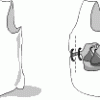
The Jelly Bean Problem (JBP)
Source Institutions
In this activity, learners are challenged to eat some candy as a cell would need to as well as to think about some of the problems that arise when a cell ingests food.

Dinosaur Flesh and Bones
Source Institutions
In this activity, learners explore dinosaur skeletons.

Compare Dinosaur Body Parts
Source Institutions
In this activity, learners explore the size and scale of dinosaurs. Learners listen to "The Littlest Dinosaurs" by Bernard Most to learn about the different sizes of dinosaurs.
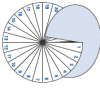
Sleep Patterns
Source Institutions
In this activity about sleep rhythms (on page 21 of the PDF), learners will collect data about their own sleep cycles and use a fraction wheel to examine their data.

Patterns and Functions: Fill 'er Up
Source Institutions
In this math lesson, learners predict, interpret, and sketch graphs of functions related to the shapes of bottles. A measure of water is poured into a container.

Rates of Change: Bottles and Divers
Source Institutions
In this math lesson (page 2 of the PDF), learners use bottles of various shapes to explore the abstract concept of rate of change.

Drip, Drop, Drip, Drop
Source Institutions
In this math lesson, learners design an experiment to model a leaky faucet and determine the amount of water wasted due to the leak.
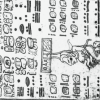
Breaking the Code: Mayan Math
Source Institutions
This is a lesson plan for an activity in which learners, playing the role of archeologists, use math concepts about number bases to decipher the Dresden Codex, an ancient Mayan document.

Statistics: Whirlybirds
Source Institutions
In this math lesson, learners measure, predict and determine the frequency of an event as it relates to how close Whirlybirds land to a target.
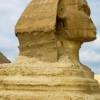
Egyptian Measuring
Source Institutions
In this activity, learners compare the ancient Egyptian system of measurement, which was based on body lengths, to the customary and metric systems used today.
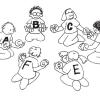
The Orange Game: Routing and Deadlock in Networks
Source Institutions
When a lot of people share one network (such as cars using roads, or messages getting through the Internet), there is the possibility that competing processes will create a “deadlock," or an interrupt

Information Hiding: Sharing Secrets
Source Institutions
This activity about cryptographic techniques illustrates a situation where information is shared, and yet none of it is revealed.
We Have Capture!
Source Institutions
Using simple materials, learners will construct the end effector (grasping device) of a robotic arm and use the device to capture and pick up an object.

Make a Model of a Home Made From Shipping Containers
Source Institutions
In this activity, learners watch a video to learn about a couple who built a home out of shipping containers in Brooklyn, New York.

Stabilization Wedges Game
Source Institutions
This game introduces learners to the scale of the greenhouse gas problem, plus technologies that already exist to dramatically reduce our carbon emissions and prevent climate change.

Heat Capacity: Can't Take the Heat?
Source Institutions
Why is ocean water sometimes the warmest when the average daily air temperature starts to drop? In this activity, learners explore the differing heat capacities of water and air using real data.

Measurement: Million Dollar Giveaway
Source Institutions
In this math lesson, learners apply measurement skills to determine, in dollar bills, the capacity of a suitcase.
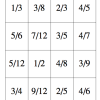
Comparing Fractions War Card Game
Source Institutions
In this math activity, learners practice comparing fractions.

Fair Spinners
Source Institutions
In this math game (Page 9 of the Are You Game? PDF), learners determine what makes a spinner fair or unfair. Learners first play a round with a pre-made spinner that isn't very fair.

Mountain Rescue Mission
Source Institutions
In this math activity, learners play a game that helps reinforce learners' understanding of the coordinate system.
